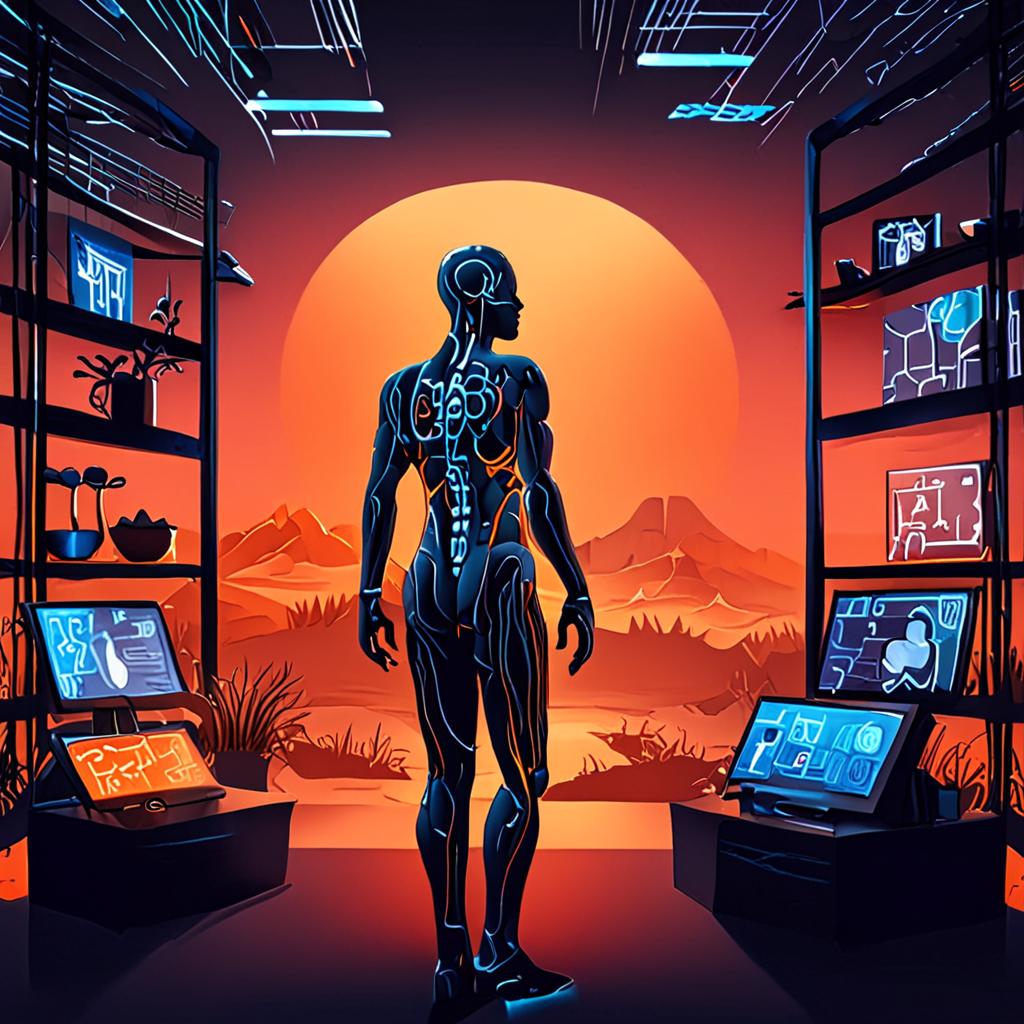Introduction
The healthcare industry is at a crossroads, facing unprecedented challenges in delivering quality patient care while managing rising costs and an aging population. One of the most significant pain points is the lack of personalized medicine, where treatment plans are often based on trial and error rather than tailored to individual needs. Existing methods, such as manual data analysis and traditional clinical decision support systems, have proven inadequate in addressing this issue.
For instance, a study by the National Institutes of Health found that nearly 30% of patients do not respond to their prescribed medications, highlighting the need for more effective treatment strategies. Traditional methods often rely on static data and fail to account for the complexities of human biology and the dynamic nature of diseases.
Artificial intelligence (AI) is poised to revolutionize the healthcare landscape by providing a unique solution to this problem. Techniques such as machine learning, natural language processing, and computer vision enable the analysis of vast amounts of medical data, leading to more accurate diagnoses, personalized treatment plans, and improved patient outcomes. In this blog, we will explore 10 revolutionary ways AI is transforming the future of healthcare, from predictive analytics to robotic surgery, and examine real-world examples of how these innovations are changing the face of medicine.
Revolutionizing Patient Care: AI-Driven Personalized Medicine and Diagnosis
The integration of Artificial Intelligence (AI) in healthcare is transforming the way patients receive medical care. AI-driven personalized medicine and diagnosis are revolutionizing patient care by tailoring treatment plans to individual needs, leading to improved health outcomes and reduced costs.
Personalized medicine involves analyzing a patient’s genetic profile, medical history, and lifestyle to create a customized treatment plan. AI algorithms can analyze vast amounts of data, identifying patterns and correlations that human clinicians may miss. This enables healthcare providers to diagnose diseases more accurately and develop targeted treatment plans.
For instance, a study by IBM Watson for Oncology found that AI-driven analysis of cancer patient data led to a 96% accuracy rate in identifying personalized treatment options, compared to 50% for human clinicians alone. This demonstrates how AI can drive measurable improvements in patient care.
By leveraging AI in personalized medicine and diagnosis, healthcare providers can reduce trial-and-error treatments, minimize side effects, and improve patient outcomes. As AI technology continues to evolve, we can expect to see even more significant advancements in the field of personalized medicine, ultimately leading to better patient care and improved health outcomes.
Streamlining Clinical Operations: AI’s Impact on Medical Research, Data Analysis, and Workflow Optimization
Artificial intelligence (AI) is transforming clinical operations in healthcare by enhancing medical research, data analysis, and workflow optimization. This is crucial as the healthcare industry faces increasing pressure to reduce costs, improve patient outcomes, and enhance the quality of care. AI-driven solutions are addressing these challenges by automating routine tasks, identifying patterns in large datasets, and providing actionable insights.
For instance, a study published in the journal Nature Medicine demonstrated that AI-powered algorithms can analyze medical images to detect breast cancer more accurately and quickly than human radiologists. This can lead to faster diagnosis and treatment, ultimately improving patient outcomes.
AI-driven workflow optimization is also driving measurable improvements in clinical operations. By automating tasks such as data entry, appointment scheduling, and patient follow-up, healthcare organizations can reduce administrative burdens and free up staff to focus on more complex, high-value tasks. According to a report by Accenture, AI-powered automation can help healthcare organizations reduce costs by up to 30% and improve productivity by up to 25%.
Transforming Healthcare Delivery: AI-Powered Telemedicine, Predictive Analytics, and Population Health Management
The integration of Artificial Intelligence (AI) in healthcare delivery is revolutionizing the way medical services are provided, making them more accessible, efficient, and effective. AI-powered telemedicine enables remote consultations, reducing the need for in-person visits and expanding healthcare access to underserved populations. Predictive analytics helps identify high-risk patients, allowing for targeted interventions and preventive care. Population health management leverages AI-driven insights to optimize resource allocation, improve patient outcomes, and reduce healthcare costs.
A notable example is the partnership between the University of Southern California’s (USC) Keck School of Medicine and the AI-powered telemedicine platform, American Well. This collaboration has enabled remote consultations for patients with chronic conditions, resulting in a 25% reduction in hospital readmissions and a 15% decrease in emergency department visits.
By harnessing AI, healthcare providers can drive measurable improvement in patient outcomes, reduce costs, and enhance the overall quality of care. AI-powered analytics can identify patterns and insights that inform data-driven decision-making, ultimately transforming the future of healthcare delivery.
Conclusion
Artificial Intelligence (AI) is profoundly transforming the healthcare landscape, enabling unprecedented advancements in medical research, diagnosis, treatment, and patient care. By leveraging machine learning algorithms, natural language processing, and computer vision, AI is revolutionizing the way healthcare professionals diagnose diseases, develop personalized treatment plans, and improve patient outcomes.
As AI continues to gain traction in the healthcare sector, two practical next steps for healthcare professionals and organizations are to:
- Experiment with AI-powered clinical decision support systems to augment diagnosis and treatment recommendations, and to identify potential biases in existing workflows.
- Adopt AI-driven analytics platforms to unlock insights from vast amounts of medical data, including electronic health records, medical imaging, and genomics data, to inform precision medicine and population health management strategies.
By embracing these innovations, healthcare professionals can harness the transformative power of AI to improve patient care, reduce costs, and enhance the overall efficiency of healthcare delivery. As the healthcare industry continues to evolve, AI will play an increasingly vital role in shaping the future of medicine.
